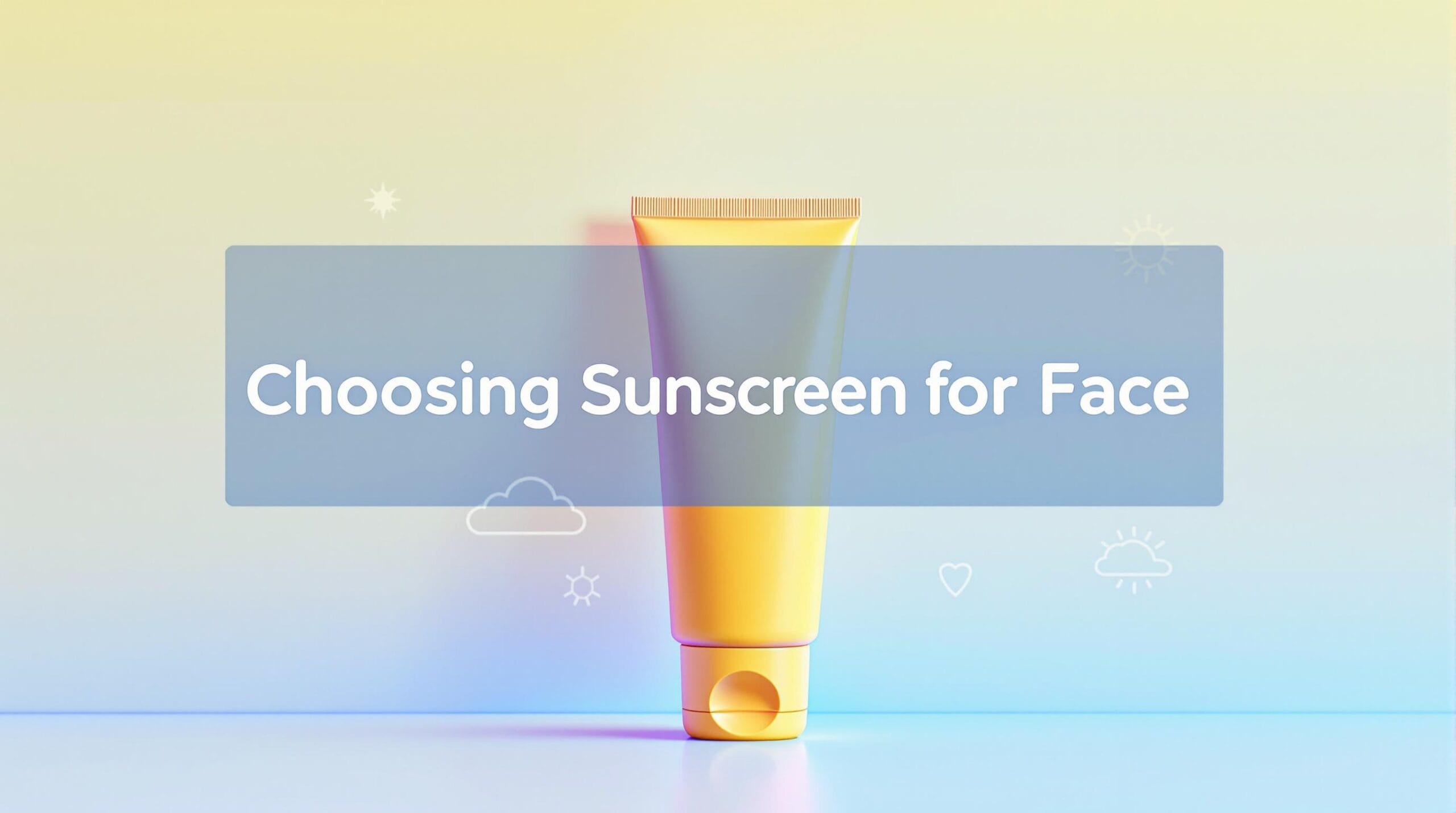
Sunscreen is essential for maintaining healthy skin. It acts as a barrier against the sun’s harmful UV rays, which can lead to skin cancers and premature aging. Applying sunscreen daily helps keep your skin looking youthful and prevents sun damage, a key factor in maintaining an even skin tone. By making sunscreen an unmissable part of your skincare routine, you protect your skin’s vital health.
Moreover, daily use of sunscreen reduces the risk of developing sunburns, age spots, and other sun-induced issues. It’s vital to choose a sunscreen designed for facial use, ensuring it has the necessary ingredients to keep your skin both safe and supple. Understanding the benefits of sunscreen encourages consistent use, which is crucial for long-term skin health. Remember, this isn’t just a seasonal product but a staple for every day, come rain or shine.
The Good, The Bad, and The Ugly
What Are UV Rays?
UV rays are the invisible radiation from the sun. They are categorized into UVA and UVB rays. UVA rays penetrate deeply into the skin, leading to premature aging, while UVB rays cause sunburns. Both types of rays can cause significant skin damage and contribute to skin cancer risk. Understanding these differences is crucial in selecting an effective sunscreen.
Do You Really Need Sunscreen Every Day?
Yes, daily application is imperative. Even on cloudy days, UV rays penetrate the atmosphere, affecting your skin. A common widespread misconception is that sunscreen is only necessary on sunny days, but in reality, protection is an everyday essential. By routinely applying sunscreen, you ensure that your skin remains safeguarded from unseen sun damage.
SPF Explained: What Does It Really Mean?
Decoding SPF: How Much Is Enough?
SPF, or Sun Protection Factor, measures a sunscreen’s ability to protect your skin from UVB rays specifically. An SPF of 30 is recommended for daily use, providing significant protection against UVB. However, SPF beyond 50 shows minimal added benefit. For maximum effectiveness, apply the recommended amount (about a teaspoon for the face) and reapply every two hours, especially after swimming or sweating.
Broad Spectrum: Why It Matters
Choose broad spectrum sunscreens, as they offer dual-action protection against both UVA and UVB rays. This comprehensive coverage is crucial for preventing long-term skin damage and provides optimal defense against the sun’s harmful effects.
Choosing the Right Type of Sunscreen
Chemical vs. Physical Sunscreens: What’s the Difference?
Chemical sunscreens absorb UV rays and convert them into heat, thanks to ingredients like avobenzone and octocrylene. They tend to be lighter and go on without leaving a white residue. Physical sunscreens act by sitting on the skin’s surface, deflecting UV rays with ingredients such as zinc oxide and titanium dioxide. These are often gentler and preferred for sensitive skin.
When choosing a sunscreen, consider your skin type. Oily or acne-prone skin might benefit from a lighter, chemical formula, while sensitive or rosacea-prone skin may find better protection with a physical sunscreen. Understanding your skin’s specific needs helps select the right formulation.
Go for Non-Comedogenic Sunscreens
Non-comedogenic sunscreens are designed to avoid clogging pores. This makes them perfect for individuals with oily or acne-prone skin. They are skin-friendly and effectively prevent breakouts, making them an acne-aware choice that allows daily protection without compromising skin health.
Ingredients to Look For: The “Must-Haves”
Key Ingredients for Effective Sun Protection
When selecting a sunscreen, look for ingredients like zinc oxide and titanium dioxide for physical protection. These create a robust barrier against UV rays. For chemical protection, avobenzone and octocrylene are key ingredients that absorb UV radiation. Ensure your sunscreen contains a combination of these for the best sun defense.
Avoiding Harmful Ingredients: What to Skip
Be mindful of ingredients like oxybenzone and octinoxate, known to potentially cause skin irritation and environmental harm. Choose products that exclude these toxins, aligning with both your health and environmental ethics.
Application Tips for Maximum Efficacy
How to Apply Sunscreen: Do It Right!
Apply sunscreen to clean, dry skin. Use an adequate amount—about a teaspoon for the face—and ensure even coverage. Pay attention to often missed spots like the ears, neck, and hairline. Let it absorb properly before heading outdoors or applying makeup.
Reapplication Ritual: Keep That Glow!
Reapply sunscreen every two hours for prolonged sun exposure. After swimming or sweating, reapply sooner. This layering keeps your sun protection hassle-free and long-lasting, ensuring enduring protection against harmful rays.
Sunscreen for Every Skin Type: Tailored Solutions
Oily, Dry, and Acne-Prone: Find Your Match
For oily skin, opt for lightweight, oil-free formulations. Dry skin benefits from sunscreen with hydrating properties. Acne-prone skin should seek out non-comedogenic options to minimize the risk of breakouts. Match your sunscreen to your skin type for optimal results.
Sensitive Skin? Don’t Worry!
For sensitive skin, look for products labeled gentle or hypoallergenic. Sunscreens with soothing ingredients like aloe vera or chamomile can offer a gentle touch, ensuring sensitive skin remains protected without irritation.
Common Sunscreen Myths: Busted!
Myth vs. Reality: Are You Misguided?
Many believe sunscreen is unnecessary on cloudy days. In reality, up to 80% of UV rays penetrate clouds. Another myth is that those with darker skin tones don’t need sunscreen, yet everyone, regardless of pigmentation, can suffer from UV damage. Challenge misconceptions for comprehensive protection.
Expert Recommendations: What the Pros Say
Dermatologists stress the importance of daily sunscreen use to reduce skin cancer risks. They advise pairing sunscreen with other protective measures, like wearing hats and seeking shade, to maximize sun safety. Stay informed with expert-approved insights for effective skincare.
Wrapping Up: Make Sunscreen Your BFF
Choosing the right sunscreen is crucial for preserving facial skin health. Make it a part of your daily skincare routine, reinforcing the importance of protection against UV damage. Encourage friends to share their sunscreen experiences, fostering a community focused on skincare empowerment.
Your ultimate protection lies in consistent practice. Cherish your skin by making sunscreen a non-negotiable habit. Share this guide to spread awareness and inspire others to prioritize their skin’s health.
The Shocking Truth: Can You Really Apply Sunscreen After Aloe Vera Gel? >>>
Is Aloe Vera the Secret Sunscreen You’ve Been Missing? Discover Its Amazing Benefits! >>>
Unlock the Secret to a Shine-Free Glow: Say Goodbye to Oily Skin After Sunscreen! >>>
Unlock the Secret to Flawless Skin: Discover the Power of Broad Spectrum Sunscreen! >>>
The Shocking Truth: Can Your Sunscreen Be the Hidden Culprit Behind Your Acne? >>>







